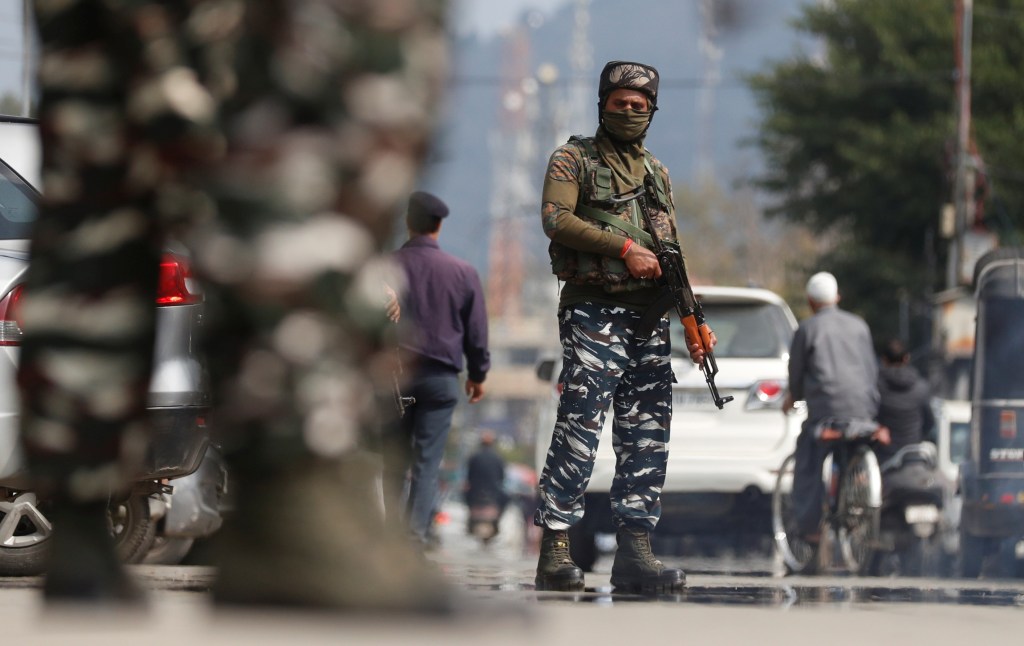New Delhi, November 12, 2021 — Police in the Indian state of Tripura must immediately drop a terror investigation into journalists for their social media posts about anti-Muslim violence during the last week of October, the Committee to Protect Journalists said today.
In a complaint filed November 3, Tripura police claimed 102 social media accounts were responsible for spreading “objectionable news items/statements,” according to news reports and the police complaint reviewed by CPJ. CPJ has identified five of the 102 accounts under police scrutiny as belonging to journalists.
Tripura police allege the accounts violated the Indian Unlawful Activities Prevention Act (UAPA), an anti-terror law, and sections of Indian Penal Code including promoting enmity, forgery, and criminal conspiracy. If tried and convicted under the UAPA, the journalists face up to five years in prison with fine, according to Indian statutes
“Indian police in Tripura need to accept that reporting on sectarian violence, on Twitter or elsewhere, is a normal activity for journalists and hardly a crime,” said Steven Butler, CPJ’s Asia program coordinator, in Washington, D.C. “The police must stop harassing the journalists for doing their job and drop the terror investigations immediately.”
The social media probes come after a civil society-led fact-finding report found the Tripura government was complacent in controlling the violence in which mosques and properties owned by Muslims were vandalized, according to news reports and a copy of the police complaint reviewed by CPJ.
These are the journalists whom CPJ has identified as having their social media accounts investigated by police.
- Meer Faisal, a journalist with news website Maktoob: The police pointed to a Twitter post by Faisal, in which he reported an October 28 attack on a Muslim man, as to why they are investigating him, Faisal told CPJ by phone. In addition to opening the investigation, Tripura police asked Twitter to block his account for violating India’s Information Technology law, which Twitter declined to do, citing its policy to defend and respect “the voice of its user,” according to Faisal and a copy of an email from Twitter to Faisal, which CPJ reviewed.
- Shyam Meera Singh, senior editor with news website Newsclick: The police pointed to a October 27 Twitter post by Singh in which he commented on the violence in Tripura, as the reason they’re investigating him, Singh told CPJ by phone. Police also asked Twitter to block his account for allegedly violating India’s Information Technology Act, which Twitter also declined to do, according to Singh and a copy of an email sent to Singh from Twitter, which CPJ reviewed. Singh regularly uses Twitter to comment and report on news events, according to a review of his tweets by CPJ.
- Sartaj Alam, freelance journalist with The Guardian, BBC, and The Telegraph: The police pointed to a now-deleted tweet by Alam in which he questioned the failure of the state government in controlling violence, according to Alam who spoke to CPJ by phone. “I’m a serious journalist who is very careful about his tweets. I have broken a lot of news on social media,” he said. “I’m shocked that the Tripura police claimed that I spread fake news through my handle.” Alam said neither police nor Twitter have contacted him.
- C.J. Werleman, global correspondent of London-based monthly newspaper Byline Times: The police named a tweet by Werleman in which he shared photographs and a report of a mosque allegedly set on fire. CPJ was unable to contact Werleman.
- The police also mentioned tweets by freelance journalist Arif Shah in their complaint, however CPJ was unable to find those tweets or contact information for Shah.
Currently, at least five journalists — Aasif Sultan, Siddique Kappan, Gautam Navlakha, Anand Teltumbde, and Manan Dar are imprisoned in India on allegations of violating the UAPA, according to CPJ documentation.
Today the Indian Supreme Court accepted a petition challenging the Tripura police’s investigation, according to news reports. The Tripura Police director general, V.S. Yadav, did not respond to CPJ’s email requesting comment.
